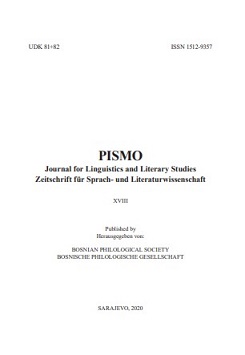Stari tekstovi u novom ruhu: značaj i funkcija književnih prijevoda s perzijskog jezika u bosanskohercegovačkoj periodici
Old Texts in a New Guise: The Significance and Function of Literary Translations from Persian in Bosnian Periodicals
Author(s): Merisa ĐidoSubject(s): Studies of Literature, Sociolinguistics, Philology, Translation Studies
Published by: Bosansko filološko društvo
Keywords: literary translation; translation theory; Persian language; Bosnian periodicals; translation and culture; function of translation;
Summary/Abstract: This paper offers an analysis of the significance and function of literary translations from Persian to Bosnian published in the journals Nada, Bošnjak, Behar, Biser and Gajret. The aim is to establish how these translations were presented and their status in the target culture related to the historical and cultural contexts at the time of their appearance in the local periodicals. The first literary translations of Persian texts appear in the second half of the nineteenth century with the opening of the local population to European cultural flows. It should also be noted that translated literary texts and their authors were neither unknown to local readers nor did they represent their first introduction to the target culture. It was the change of the cultural pattern that led to a completely new reception of these texts. Beside their main purpose of entertaining and educating readers, these texts implied maintaining a connection with the tradition that relied on the Oriental-Islamic culture and the desire of some translators to adopt some literary forms from Persian literature in order to find their place in the process of establishing modern Bosnian literature. The change of the cultural pattern also led translators, in their selection and the interpretation of some Persian classics in the target culture, e.g. of Hafez Shirazi and Omar Khayyam, to become strongly influenced by Western interpretation of these authors. In comparison to translations from other languages, the translations from Persian occupy a secondary place in the target culture and entail domestication of the original work, i.e. adaptation to the target culture and the foreign reader. In the translation process, translators were focused on the form and fluent style while avoiding foreign words and expressions. The content of the original work was not neglected, but rather adjusted to the knowledge and standards of the readers of the translations.
Journal: Pismo - Časopis za jezik i književnost
- Issue Year: 2020
- Issue No: 18
- Page Range: 54-69
- Page Count: 16
- Language: Bosnian

